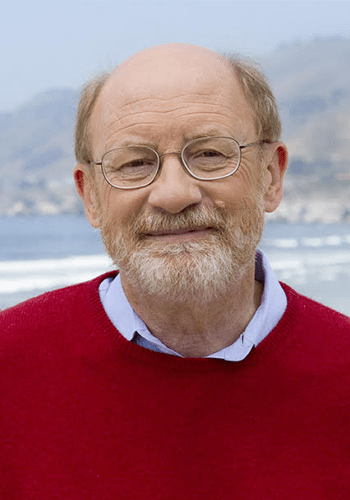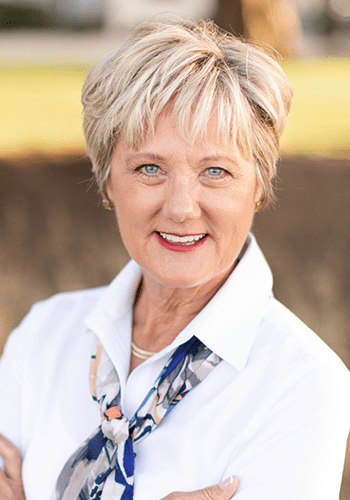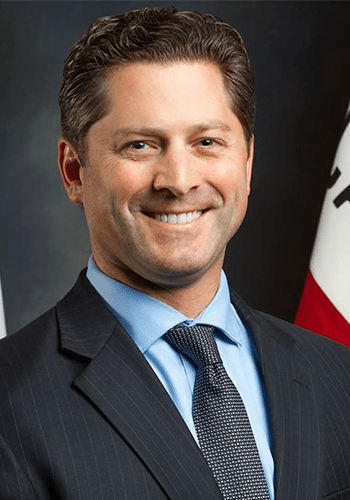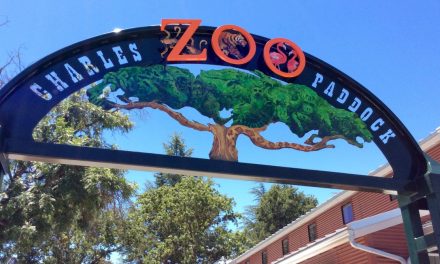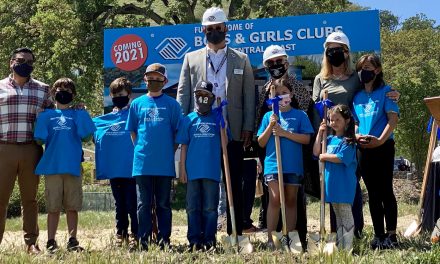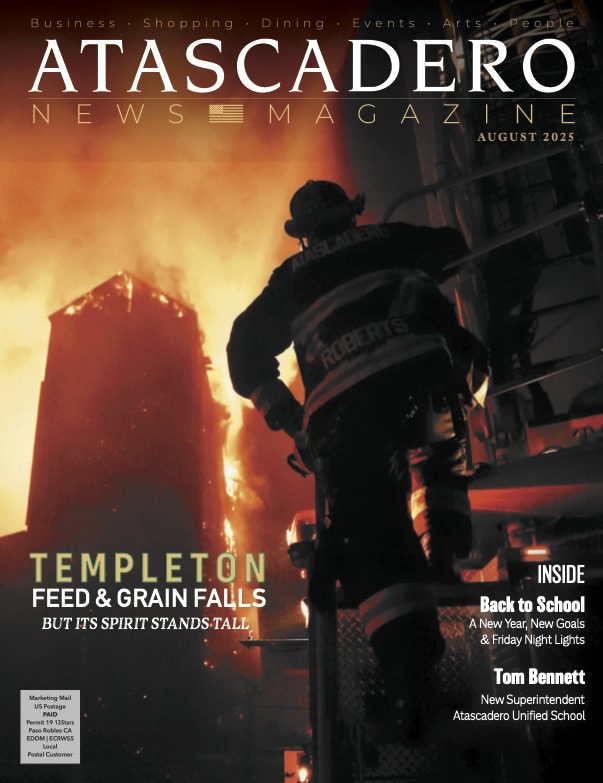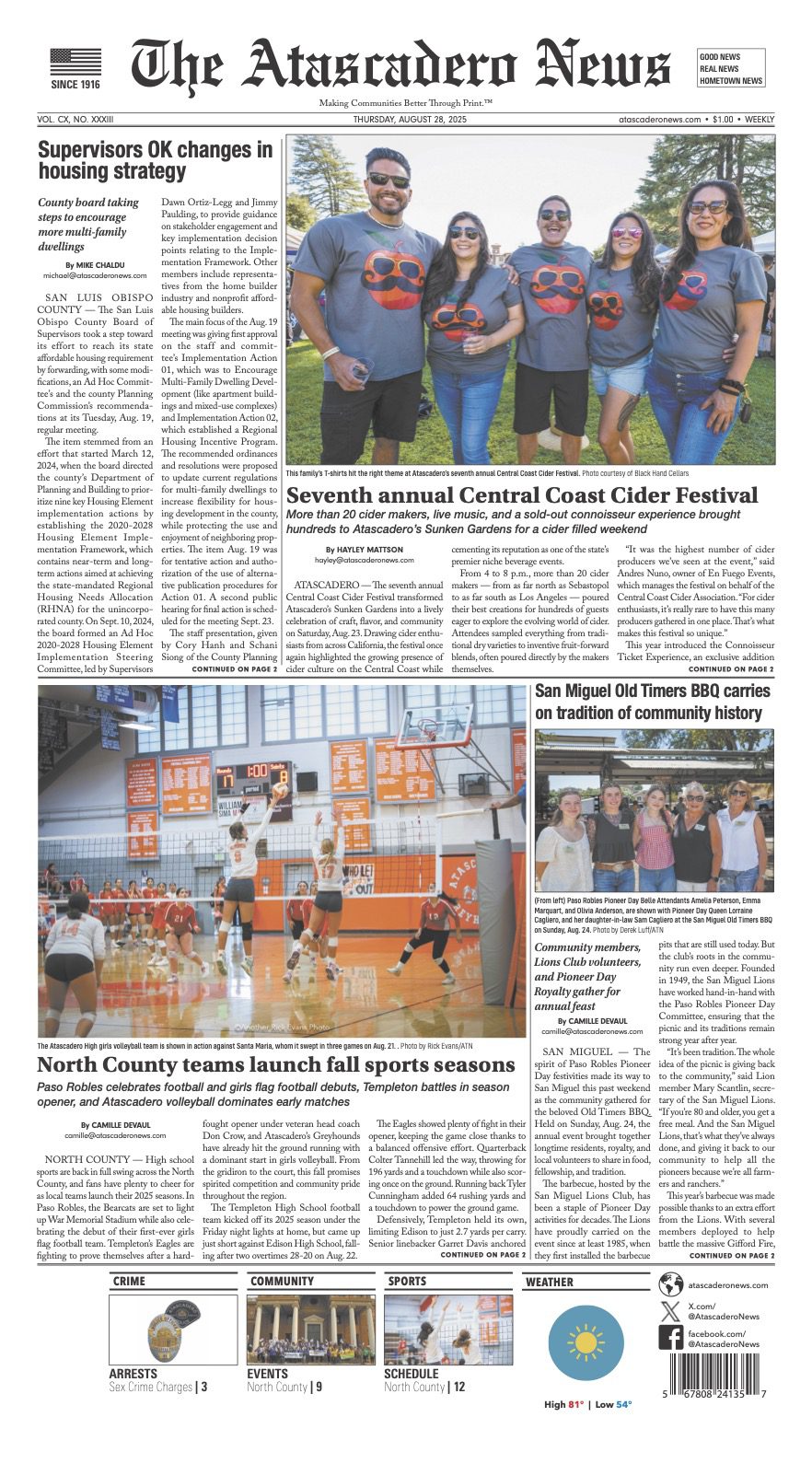SAN LUIS OBISPO — Three of the four candidates running for local state Assembly and Senate seats participated in a forum Monday afternoon, Sept. 28, organized by the San Luis Obispo Chamber of Commerce.
The majority of the forum centered on the economy, specifically the impacts resulting from the closure of the Diablo Canyon Power Plant in 2025. Climate change and housing were also touched on by candidates, who also tied these issues back to Diablo Canyon.
State Senate District 17 candidates Vicki Nohrden and John Laird and District 35 State Assembly Representative Jordan Cunningham participated in the 90-minute forum held via Zoom. Nearly 30 community members were on the call and were given the opportunity to have their questions answered by the candidates.
State Assembly District 35 candidate Dawn Addis did not respond to requests to participate in the forum, organizers said.
Candidates gave opening and closing statements and answered questions from the entire group and while in breakout sessions with the group split in half. A majority of the forum focused on the state Senate candidates. It wrapped up with Assemblyman Cunningham talking about what he’s accomplished during his term and answering a couple of questions.
Nohrden and Laird are running for the seat currently held by Sen. Bill Monning, a Democrat who terms out in 2020. District 17 covers all of San Luis Obispo and Santa Cruz counties and parts of Monterey and Santa Clara counties.
Four people — one Republican and three Democrats — were on the state’s March primary ballot for District 17. Laird, a Democrat who has a long career in public service and public policy, was the top vote-getter with 42 percent, followed by Nohrden, a Republican who has never held a political office, with 36 percent. The top two vote-getters moved on to the November runoff.
In the Assembly race, since there were only two candidates — Addis, a Democrat who is a co-founder of Women’s March SLO, and Cunningham, a Republican who was first elected to the State Assembly in 2016, both advanced to the general election. District 35 includes all of San Luis Obispo County and a portion of northern Santa Barbara County.
Laird was Secretary of the California Natural Resources Agency from 2011-2019 and a former legislator who represented the 27th district in the California State Assembly until 2008.
“I really highlighted in this campaign issues of climate, affordable housing, healthcare and education and since the primary, there is an overlap which has really been public health trying to get the economy back on track and issues of social justice,” Laird said during his opening statement.
Nohrden said she is running because Sacramento is out of control. She has spent 20 years as a family advocate and community leader. Her public service has included classrooms, boardrooms, and courtrooms throughout the region.
“What I am hearing is that the people don’t feel like they are being represented in the legislature up there in Sacramento,” Nohrden said. “From pushing businesses out of the state to failing to address serious infrastructure needs here in San Luis Obispo County to telling parents how to raise their children and educate their children. Sacramento’s business-as-usual is just wreaking havoc on our state and our region.”
When asked how they would assist local businesses recovering from the pandemic, Laird and Nohrden brought it back to Diablo Canyon.
“I’m really concerned about the Diablo Canyon that is closing,” Nohrden said. “It has to do with over 1,500 jobs, but not only that energy sources for the future. I think economically, there is going to be a big impact on head-of-household jobs. I think economically, we are going to see that really impact San Luis Obispo County.”
Laird said planning, using state money earmarked for transitioning and getting the state to further invest in SLO County were crucial for the economy as it recovers from COVID-19 and Diablo closing.
“The other thing is that the state invests in San Luis Obispo, whether it’s the state hospital, CSU, UCs, school systems, roads, water and the question is in this economic downturn whether we can speed up any of that investment,” he said.
When asked to get into specifics for Diablo Canyon and what the state should do, Laird again reiterated the importance of using state funds and not waiting for it to close to do something.
“Specifically, we really have to target the amount of people that are dislocated, what their skills are, where they can be either retrained or continued in other jobs,” Laird said. “If you look at the sector of the economy, in terms of the money that is provided, the property that is owned, we really have to outline what we can work on that tries to pick up the economic slack, whether it is reusing the site, whether it is expanding other businesses and other sectors.”
Nohrden said Diablo was a “large beautiful, beautiful piece of property” and was sad it was closing but didn’t offer anything of substance pertaining to what the state should do.
“What is the state going to do about it, I’m not really sure what the state is going to do about it but they might want to be thinking about it because we have 10 percent of our energy source for the whole state of California that is going to be shut down,” she said.
As far as protecting the environment and addressing climate change on the Central Coast, Laird and Nohrden said these were important issues.
“Climate change is real and we are going to have to deal with it,” Laird said. “There is a lot to do about climate and I have been working on it, and I am really looking forward to continuing that work because it’s the thing that is staring us biggest in the face, for the economy, for public health, for our future and we have to address.”
Nohrden said she was not in favor of fracking and could see perhaps backing floating wind turbines off the coast.
“We need to start thinking about that for the future and wouldn’t it be wonderful if this area gets innovative and creates something new so we can be a leader even in energy right from this county,” she said.
Both candidates were asked what the state should do to address affordable housing.
“I think our state needs to keep giving guidelines and accountabilities and support and continue to let local regions meet those goals,” she said. “I think we need more housing, higher density, but I also feel that it is really important that there is local control in the decisions being made.”
Laird said the state and or federal government should be providing more incentives to developers to build affordable housing.
“We would work with developers and exact a certain percentage for affordable housing and they were able to turn to these federal funding streams occasionally and do that,” Laird said. “Locals need to do that, but hopefully they can do it in a way that we can get partnership.”
The final 15 minutes of the forum were solely Cunningham’s.
“I made it a major focus thus far in my time on the Assembly to focus on infrastructure development on the Central Coast,” Cunningham said. “We got funding in my first term to fix the dangerous Highway 41-Highway 46 interchange — $150 million project supposed to break ground next year. I am very proud of that.”
For Diablo, Cunningham said securing $82 million of community impact funding into the county, its schools and cities, and over $120 million of workforce money to keep the qualified workforce and make sure it stays open through 2025 were “big wins for our community.”
Cunningham said his office helped over 4,000 people who had issues with the state Employment Development Department (EDD) to date since March. EDD is in charge of distributing unemployment benefits to people out of work due to COVID and other reasons.
“EDD is a complete mess. We need to overhaul the agency; it is not doing its job; it is not serving any of us well,” he said.
Cunningham said two of his more significant legislative priorities had been Career Technical Education and protecting human trafficking victims. He secured state matches of local dollars for CTE.
“A lot of our young kids have the ability to go learn a phenomenal profession, get trained in that, get exposed to that when they are young,” Cunningham said. “There is tremendous opportunity right now since we are building things again in our state.”
Cunningham said he was proud to have “authored four pieces of legislation that were signed into law to protect trafficking victims, get them the resources they need to rebuild their lives and give law enforcement and prosecutors more tools to go uproot that in our community before it really takes hold.”
The general election is Nov. 3.


